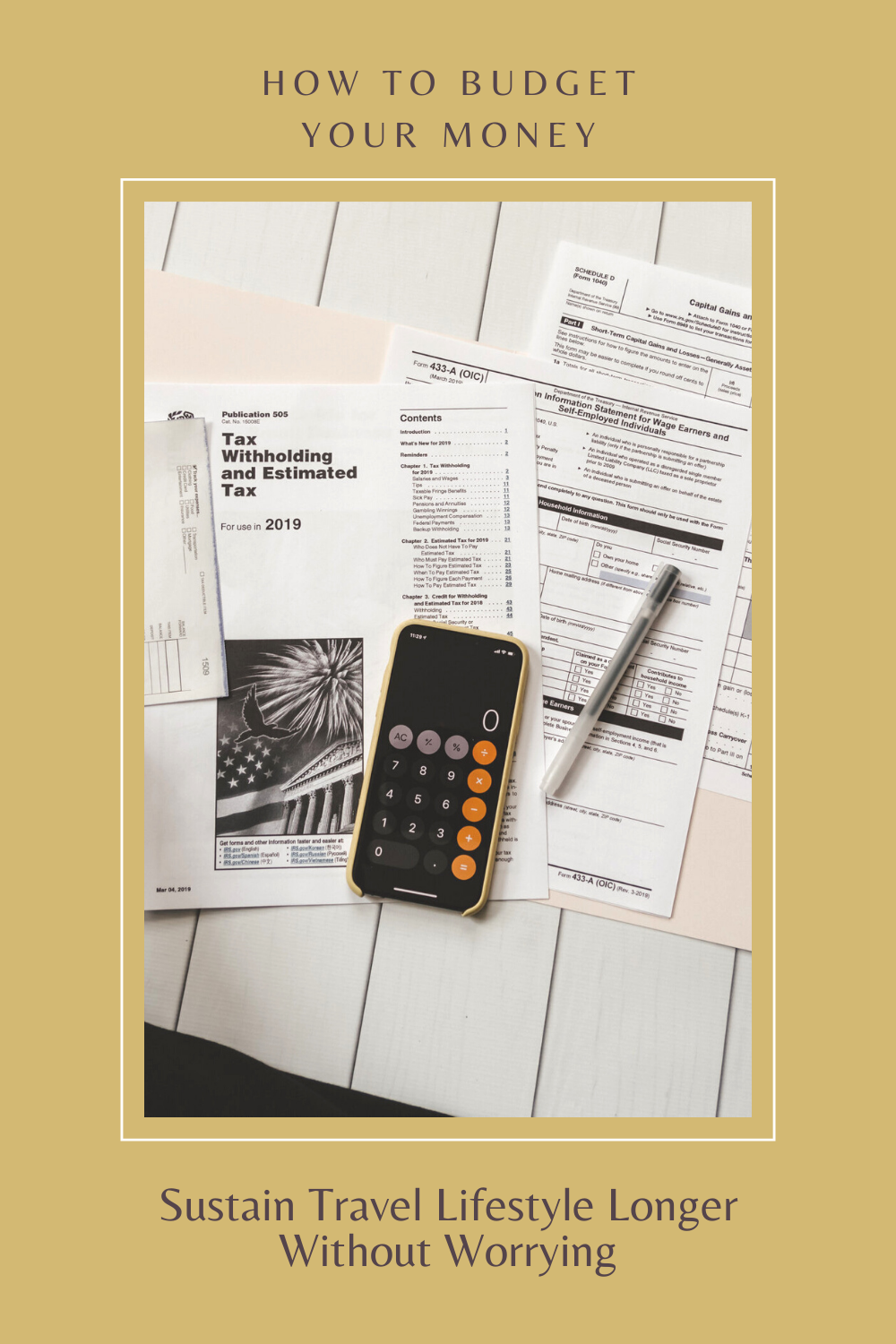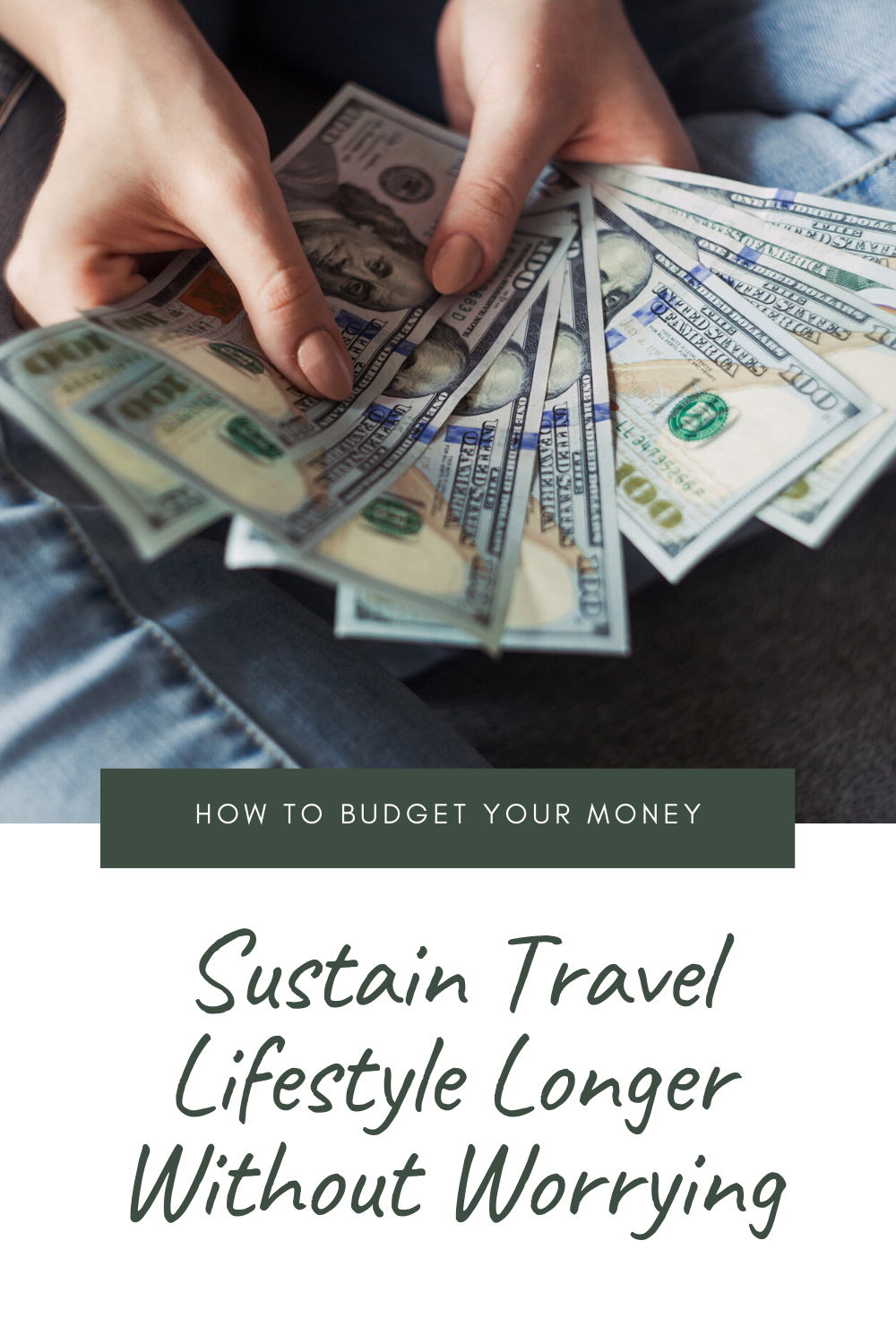20 Tips on How To Budget Your Money and Sustain Travel Lifestyle Longer Without Worrying
No better person can predict your daily spending other than yourself. You know what you like to do, what you like to eat, and where you like sleeping.
Photo by Alexander Mils
Further, below is a guide on how you can create a budget worksheet that you can use to craft a financial plan.
Other Articles You can Read:
2015 Recap: Dreams do come True - from Backpacking to Luxury Travel #SustainTravel
How We Fund our Sailing Life - Mr&MrsHowe Sustainable Travel Lifestyle
How to Fund and Sustain a Life of Long-Term Travel Around the World- Part 2
50 Tips to Travel Around the World for Filipinos with Less Money
29 Legit Ways On How Filipinos Can Earn Money Online - Side Hustle Jobs to get Extra Money
Here are the steps on how to use this form:
1. Draw a list of all destinations you plan on seeing.
2. Tally daily expenses using free cost-of-living calculators that you can access here and here.
3. Fill in the worksheet. Enter the destinations on the left, add in the number of nights, and put the daily average costs that you have tallied using the cost-of-living calculators.
4. Do the math and come up with actual numbers necessary to support your trip.
5. If your savings are higher than the projected expenses, you are ready to go. Otherwise, adjust your route so that your savings can cover your itinerary.
Photo by Christian Dubovan
How to Make Your Money Last
As mentioned earlier, you do not have to be filthy rich just to travel for the long-term. What you need is a budget and clever ways to sustain it.
Be smart and do your research. If you are conscious about where your money goes and ensure you still find an income while on the road, there is no reason for you to cut your trip short.
Like always, we want to help you out. Below are general tips that you can follow to stretch your budget the furthest and enjoy traveling for the long-term.
20 Best Ways to Stretch Your Budget
Photo by Kelly Sikkema
1. Prioritize your interests in the budget allotment. Put a larger share of your money on food and drinks if this is your passion. But save up on accommodation and tours. If you like adventure tours, place more money there but cut costs in other areas. Be realistic. Do what you want but adjust accordingly.
2. Research so unexpected costs don't eat your fund. Find out how much food costs or the price of transportation. Read up on your destination so you know exactly how it costs.
3. Create a budget. Do not leave without knowledge of your money. At least have a basic idea of projected expenses and how much your savings compare to it.
4. Never go over budget. Show some discipline. Stick to your budget. If you end up splurging, make sure you cover the costs by skimping on the other end.
5. Track expenses. Your money lasts as long as you plan it to last.
6. Simplify your life and get into habits of frugality. Spend less on lunch. Eat out less. Cut back on fancy coffee drinks.
7. Eliminate vices. Cigarettes and alcohol do not come cheap!
8. Do free things. Take walks along the marina. Enroll in free classes or recreational activities. Swim. Visit museums that do not collect entrance fees.
9. Keep your distance from financially irresponsible people.
10. Monitor ATM and credit card transaction fees. Before you know it, the transaction fee may be larger than the amount you are withdrawing or paying for!
11. Watch out for money exchange rip-offs. Go to a bank for the best and exact conversions.
12. Go for cheap travel options. Walk. Travel by land. Use public transport.
13. Never travel without insurance.
14. Sign up for a travel credit card. Collect miles and fly for free.
15. Watch out for deals and promos.
16. Use the sharing economy. Instead of booking a hotel, why not try Couchsurfing or AirBnB? Bonus: You meet locals who know where the best deals in town are!
17. Hitchhike. Do not be afraid. In some places in the world, this is perfectly normal. It is exciting and free. Try your luck in New Zealand, Australia, Central America, and Eastern Europe.
18. Join free walking tours. Go to the local tourist office or simply do an online search. Enjoy!
19. Cook. Score an accommodation with a kitchen that you can use. Buy groceries and cook your own food. This is definitely cheaper than eating out.
20. Book everything in advance for better prices.
Are you on Pinterest? Pin these!







![How to Use Instagram to Promote Your Travel Blog & Earn Money [Digital Marketing Tips]](https://images.squarespace-cdn.com/content/v1/5806a87f6a4963c2ddce112c/1584528831807-78QSGIBZEOOQLPGIPPPF/image-asset.jpeg)





